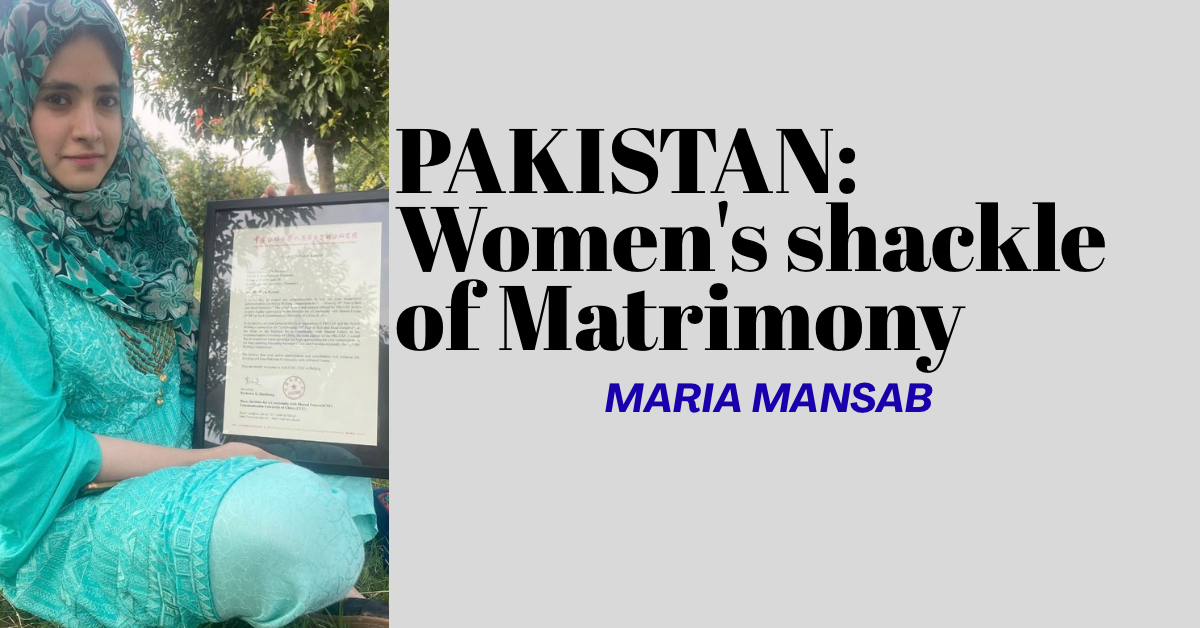In Pakistan, for many young women, despite their progress in education or professional advancement, society continues to judge their success through a single lens: marriage. The reality of this pressure is not abstract. It is lived, spoken, and reinforced daily by relatives, friends, and even one’s parents.
After attaining higher education and securing a decent job, I find that my professional achievements are downplayed as secondary accomplishments, and my marital status becomes the talking point around me. At family gatherings, the most common things I get to hear are: “What will she do with so much education? Just marry her off now,” or “fulfill your responsibility in your lifetime and get your daughter married.” My father’s health emergency once brought relatives to our home, but rather than providing comfort, one of my cousins advised him bluntly to marry me off quickly because of his illness. Such statements not only minimize women’s personal growth but also intensify the family’s suffering in already troublesome situations. Male family members tend to remind us that, no matter how educated we are, once married, we will still end up “washing dishes.
This attitude is part of a broader cultural problem: women’s education and career advancement are treated as secondary to marriage and reproduction. In Pakistan, a woman’s respect and identity in her marital home remain closely linked to her ability to bear children. The societal fear of infertility, particularly after the age of thirty, is imposed on women over and over again by their families. My mother, like so many others, frequently fears that if I pass this “age limit,” my ability to conceive will be lost. In this narrative, marriage is reduced to a race against biological time, and a woman’s happiness is equated solely with her capacity to bear children.
When my elder sister got married, she did not conceive within the first two years, and her mother-in-law kept reminding her of other women’s stories, those who had conceived immediately and those who had suffered with infertility. “What was meant to be a time to adjust to her new life turned into a period when her value as a wife was assessed based on how soon she could be a mother. This constant pressure showed me how deeply entrenched the belief is that a woman’s value in marriage is measured by her ability to give birth.
Along with this, she was often asked why, if she had married in her prime age, her sisters were still unmarried. These constant remarks made her responsible for her siblings’ choices and timelines, an unfair burden that women in our society are forced to bear.
But what if a woman cannot bear children? The bitter reality is that in most families, her marriage is incomplete, and she loses value. Second marriages for men are often suggested as a “solution,” leaving women stigmatized and vulnerable. My relatives and cousins have experienced such tragedies: early marriages at the age of fifteen or sixteen, years of medical treatments, and finally, poor physical and mental health due to the inability to produce children. One of them, following decades of social pressure and medical treatments, now has poor cardiac muscle and depression. Society still questions whether she can dress up, wear makeup, or be dignified because she doesn’t have children.
The roots of such patriarchal thinking go even deeper. According to UNICEF, Pakistan has the world’s sixth-highest rate of child marriage. About 18% of women aged 20–24 in Punjab were married under the age of 18, as per the Pakistan Demographic Health Survey 2017–18. Early marriage not only deprives girls of their education and childhood but also exposes them to early pregnancy, serious health consequences, and a lifetime of economic dependence. The financial burden is enormous: child marriage costs Pakistan an estimated 4.5% of GDP every year. Additionally, according to UNFPA, two in three Pakistani women are unable to decide about their reproductive health. The birth rate among young people is 41 births per 1,000 girls aged 15–19, and a mother dies every 45 minutes due to pregnancy complications in Pakistan.
This condition has deteriorated in the aftermath of disasters caused by climate change. Devastating floods pushed families into desperation, increasing the number of so-called “monsoon brides,” young girls married off to alleviate the economic burden on their families. These practices encourage cycles of poverty, exploitation, and institutionalized inequality.
What is often forgotten in these conversations is that motherhood and marriage must be individual decisions, not obligatory ones. A gynecologist, Dr. Tahira Kazmi, contends that young women must spend the early years of marriage understanding their new marital home before deciding to bear children. Yet, in practice, most Pakistani women lack the privilege of making such a choice. Their marriages and lives are judged and maintained only by giving birth.
Pakistani society must confront its obsession with women’s marriages and reproduction. The numbers paint a grim picture: early marriages, preventable maternal deaths, limited reproductive rights, and the immense economic toll of child marriage. But behind every statistic is a personal story of a girl silenced, a woman stigmatized, or a daughter reduced to her “biological function.”

